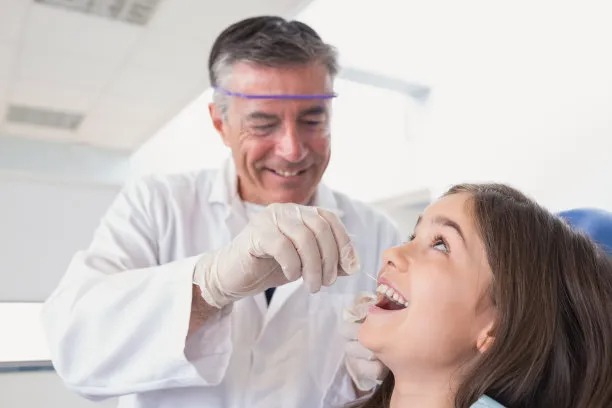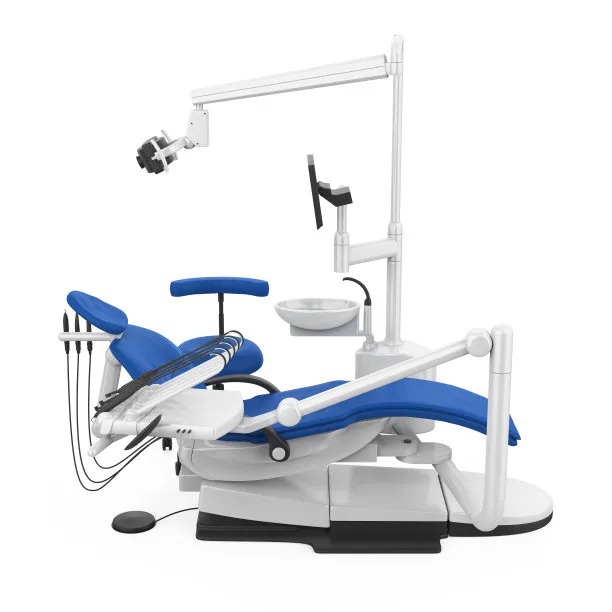Summary: Dental care is a crucial aspect of maintaining oral health, particularly before and after a tooth extraction. This article discusses the significance of proper dental hygiene procedures and aftercare in preventing complications, ensuring a smooth recovery, and promoting overall dental well-being. The four key areas addressed include preparation for extraction, post-extraction care, pain management, and preventing infection. By following these guidelines, individuals can ensure a healthier mouth, quicker recovery, and reduced risk of long-term dental issues.
1. Preparation for Tooth Extraction

Preparing for a tooth extraction begins with a thorough dental examination. This involves assessing the condition of the tooth to be extracted, discussing medical history, and determining potential risks. A comprehensive evaluation helps the dentist devise an appropriate treatment plan, which is vital for a smooth and safe extraction process.
In addition to the examination, patients must follow specific pre-extraction instructions, such as fasting if they will receive anesthesia. Proper preparation also involves managing any underlying dental conditions, such as gum disease or infection, to minimize complications during extraction. Ensuring that the extraction site is in optimal condition is key to promoting healing.
Lastly, patients should openly communicate with their dentist about any concerns or questions regarding the extraction. Understanding what to expect during the procedure can alleviate anxiety and ensure that the patient is mentally and emotionally prepared for the experience.
2. Post-Extraction Care Guidelines
Post-extraction care is vital for a speedy recovery and minimizing discomfort. Initially, following the tooth extraction, patients should avoid disturbing the extraction site. This includes not rinsing, sucking, or spitting, which can dislodge the blood clot that forms at the site and slow down healing.
Another critical aspect of post-extraction care is pain management. Dentists often recommend over-the-counter pain relievers or prescribe medication to manage discomfort. Patients should take medication as directed and avoid excessive use, which might mask worsening symptoms that require further attention.
It is equally essential to maintain good hygiene in the days following the extraction. Gentle brushing of the surrounding teeth is recommended, but avoiding direct contact with the extraction site is crucial. After 24 hours, patients can start rinsing their mouths with warm salt water to promote healing and reduce inflammation.
3. Pain Management After Tooth Extraction
Pain management is a significant concern for many patients undergoing tooth extraction. Effective pain control allows for a more comfortable recovery experience. Typically, dentists provide specific guidelines on using pain relief medications, which can include non-steroidal anti-inflammatory drugs (NSAIDs) for reducing inflammation and discomfort.
Additionally, applying ice packs to the affected area can help minimize swelling and numb the pain. Patients should apply ice in intervals of 15-20 minutes to avoid skin irritation. Understanding these methods of pain management can provide reassurance and lead to a quicker recovery.
Lastly, patients should be alert to any unusual or intensified pain after the extraction. If the pain worsens instead of improving, this should be communicated to the dentist. Persistent or severe pain may indicate complications, such as an infection or dry socket, which requires prompt medical intervention.
4. Preventing Infection and Complications
Preventing infection is crucial following a tooth extraction. Proper aftercare that includes maintaining good oral hygiene is essential to minimize the risk of postoperative infections. This includes avoiding touching the extraction site and ensuring hands are clean before touching the mouth.
Furthermore, dietary choices play a significant role in the healing process. Patients should stick to soft foods and stay hydrated, avoiding hard or spicy foods that could irritate the extraction site. Avoiding alcohol and tobacco products is also essential, as these can hinder the healing process and increase the risk of complications.
If patients notice symptoms such as fever, excessive swelling, or pus at the extraction site, it is crucial to seek immediate dental care. Early intervention can prevent further complications and ensure a smoother recovery. Being vigilant about these signs can lead to a successful outcome post-extraction.
Summary:
In a nutshell, dental care before and after a tooth extraction is paramount for maintaining oral health. Proper preparation not only ensures a smoother extraction procedure but also sets the groundwork for effective post-extraction recovery. Through appropriate pain management and infection prevention methods, patients can significantly enhance their recovery experience and minimize long-term complications.
This attention to dental hygiene and care ultimately leads to better oral health and well-being. Following these guidelines can lead to a healthier smile and more positive dental visits in the future.
This article is compiled by Vickong Dental and the content is for reference only
Vickong Dental
Vickong Dental is a large medical group established in Hong Kong in 2008 by professors from well-known medical universities in Guangdong and Hong Kong, as well as medical doctors from key national '985' universities (including Master's supervisors and senior professors). The chain of branches brings together expert dentists with PhDs and Master's degrees from Hong Kong and Mainland China, committed to providing high-quality dental treatment.
"Vickong Dental Practices the University Motto of 'Healing and Serving Society,' with a Stable Operation for Sixteen Years. It Has Been honored with Hong Kong Enterprise Leaders's Choice,' and is a Global Trusted Implant Center for the Nobel Implant System. Recommended by Hong Kong Metro Broadcast and Guangdong Television, it Serves Customers from Over Thirty Countries and Regions, Gaining the Trust and Favor of Citizens from the Guangdong-Hong Kong-Macau Greater Bay Area and Surrounding Cities.

Thousands of customers' unanimous praise
The most recognized and highly recommended dental service by customers in the Guangdong-Hong Kong-Macau Greater Bay Area
We Ensure You Receive Detailed Care and Attention Here
Hong Kong standards, Shenzhen prices, Your Trusted English-speaking dentists

Vickong Dental Medical-Grade Instrument Disinfection Process
Vickong Dental Medical-Grade Instrument Disinfection Process

Vickong Dental Chain: A Warm and Comfortable Environment for Treatment






Appointment Hours

Q&A
Why choose Vickong Dental?
Vickong Dental practices the university motto 「Medicine to Benefit Society」, with each branch bringing together highly qualified dentists with doctoral and master’s degrees from Hong Kong and the Mainland, and has maintained seventeen years of steady operation。Recipient of 「2024 Hong Kong Enterprise Leaders Brand」, 「2025 Hong Kong Enterprise Leaders Brand」, a Nobel Biocare Global Trusted Implant Center, and a brand recommended by Metro Radio Hong Kong and Guangdong TV。
To date, we have served customers from more than thirty countries and regions,earning exceptionally high word-of-mouth recognition and trusted recommendations from residents across the Guangdong-Hong Kong-Macao Greater Bay Area and surrounding cities
We have eight major branches in Zhuhai、Shenzhen,and a consultation and service assurance center in Hong Kong,so you can book a free consultation at any time for any questions,which is very reassuring.
If I do not accept the quotation after the CT scan, will I be charged??
No! As long as the actual treatment has not started, you will not be charged any fees.
Will there be any additional charges during the treatment process?
No, there won’t be any additional charges. Before treatment begins, we will clearly explain the treatment plan and its corresponding fees. Only after the patient agrees and signs the consent form will we proceed with the dental service.
Can I pay in Hong Kong dollars?
Yes. Vickong Dental accepts payment in Hong Kong dollars. The amount will be converted based on the exchange rate of the day, and the applicable rate will be clearly communicated to you in advance.
Can I reschedule my appointment at any time?
Yes. Please contact us via **WeChat** or **WhatsApp** as early as possible, providing your original appointment time and details, along with your preferred new date and time slot for rescheduling.













